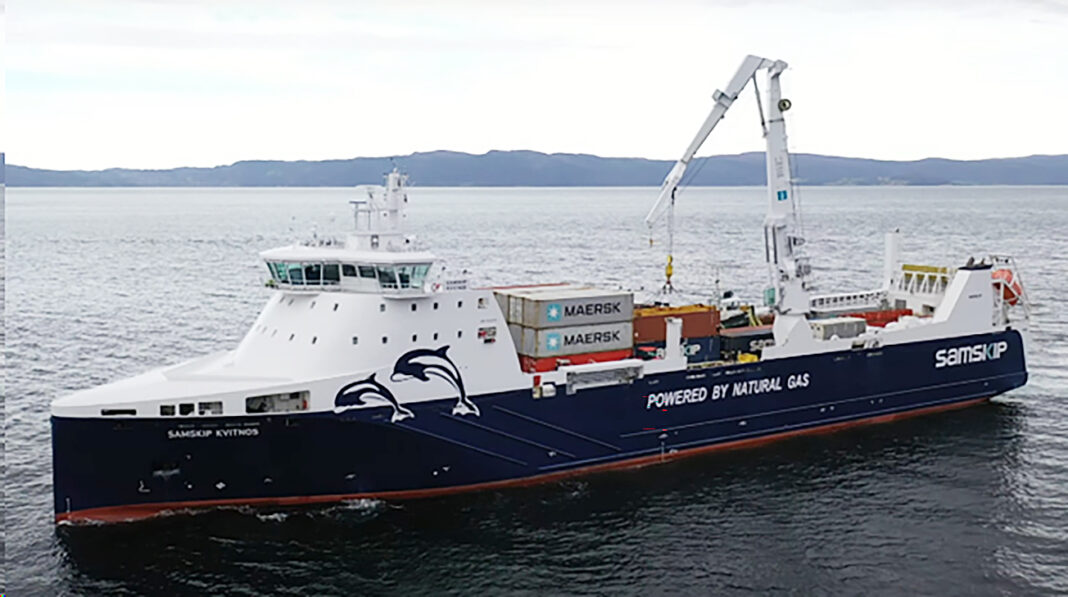Samskip is to partner in the HyEkoTank project, an initiative supported by the European Union’s Horizon Europe program. As part of its ongoing efforts to reach net zero emissions by 2040, Samskip will retrofit its multipurpose vessel Samskip Kvitnos with hydrogen fuel cell technology developed by TECO 2030.
Samskip Kvitnos operates on a fixed route from Rotterdam along the Norwegian west coast to Hammerfest as part of Samskip’s logistics on one of Europe’s most environmentally sensitive regions.
By retrofitting this vessel with zero-emission fuel cells, Samskip will ensure Samskip Kvitnos stays ahead of upcoming regulations, including the FuelEU Maritime and EU Emissions Trading System (EU ETS), while also addressing the need for zero emissions in Norwegian world heritage fjords by 2030.
Participation in the HyEkoTank project is the latest of Samskip’s initiatives aimed at reducing carbon emissions across the maritime sector. From its Seashuttle project, which is building hydrogen-powered container ships, to its use of biofuels, shore power and CO2 capture systems, Samskip is working to use advanced technologies and partnerships to meet its decarbonization targets.
“We have spent years actively pursuing sustainable solutions across our fleet, and this retrofit of the Samskip Kvitnos aligns perfectly with our vision for the future of shipping,” said Erik Hofmeester, Head of Vessel Management at Samskip.
“Working alongside TECO 2030 and the HyEkoTank consortium, we are ensuring that the Kvitnos not only meets but stays ahead of the zero-emission targets set by the EU and Norwegian authorities, all while continuing to provide reliable service for our customers.”
The HyEkoTank project is the world’s largest ongoing fuel cell retrofit effort, demonstrating the potential of hydrogen technology in reducing emissions in the global maritime sector. For Samskip, retrofitting Samskip Kvitnos is not just about compliance, but also about future-proofing its fleet to meet the energy needs of tomorrow while delivering tangible environmental benefits today.


